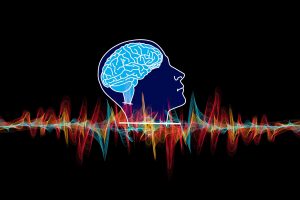How Can I Be More Emotionally Resilient?
Emotional maturity, resiliency, stability can be achieved through some personal therapeutic work
Why Am I Emotionally Unstable or Unavailable?
Our emotional stability has a lot to do with emotional resilience which is a combination of nurture versus nature, but nature in early development of the child both in utero and after birth plays a major role as the perception of its environment is taken on by the nature of the child or genes if you will. This study and theory is known as epigenetics.
In neo-natal state, new born, the child begins learning at a rapid rate through its environmental stimulus, its surroundings. The child learns how their mother and father respond to their environmental stimulus whether safe or unsafe. Studies of this nature have been observed by a growing number of scientists and those in the medical field some of them include Dr. Bruce Lipton, Dr. Daniel Siegel, Dr. Pat Ogden, Dr. Nigel Plummer, and significantly Dr. Stephen Porges, and some others.
 Brain wave states of learning and consciousness
Brain wave states of learning and consciousness
Brain waves are measured by using EEG readings also known as electroencephalography. There are four main waves to be observed: Delta, Theta, Alpha, and Beta.
Ages of development corresponding to brain waves found in the developing brain are as follows:
Birth – 2 years of age is when Delta waves are observed which are 0.5-4 Hz. In this stage of development their level of consciousness is more like an sleep like state when dreams occur. That is why some people report that their memories of this stage in life is questionable and often wonder if they imagined it or if it really happened. Memory is there and needs to be understood when it comes to life events and how it might have impacted you into adulthood.
2 – 6 years of age is when Theta waves are seen and become dominant which are 4-8 Hz and their level of consciousness is much like a half asleep to half awake adult state. In the Theta brainwave state children are very imaginative and can live out make believe scenarios, where creativity, insights and daydreaming are the norm.
6-8 years of age is when Alpha brainwaves become observable and functional which is a frequency of 8-13 Hz. In this state is when we experience physical and mental relaxation. For a child though they are not quite aware of things as yet especially of time, such as yesterday, today and tomorrow or when you tell them to wait a minute they think it is never.
8-12 years of age is when Beta brainwaves become observable and functional which is a frequency of 13-32 Hz. When the brain matures to this level then the child will begin to become consciously alert, and will engage in active thinking. For example that is when they can begin to engage in active and meaningful conversation, begin to make decisions, problem solving, focusing on a task and able to begin learning a new concept. This is the beginning of conscious and analytical thinking.
The brain matures somewhere around the age of 25 but has a number of changes throughout our life. What we do in adulthood determines whether or not we can attain to peace, hope, satisfaction, and contentment.
Emotional resiliency comes from childhood environment, parenting styles, attachment styles, perceptions, and adverse childhood events.
What may have had an imperfect childhood does not mean that you are doomed there is hope for you. The beauty of the brain is that it can be changed but it does take a number of therapeutic interventions to make this happen.
 Changing our behaviour
Changing our behaviour
In childhood our behaviour is programmed through what Dr. Bruce Lipton calls “a simple stimulus-response mechanism.” We learn from outward perceptions, parental behaviours, parental emotional states, parental attachment styles, which includes even complex social interactions. All of these things contribute to the programming of a child’s subconscious behaviour which causes them to conform to the beliefs of their community or social world, specifically their “family life”.
Why am I so emotionally unstable?
The question “Why am I so emotionally unstable?” is a loaded question as it can have many reasons some of which can include:
- in utero emotional upsets of the mother
- mother’s use of drugs or substances before and during pregnancy
- lack of emotional attunement to the child
- lack of healthy parental response to a child’s distress
- traumatic events such as war, rape, drugs, terrorism, parental conflicts, yelling, swearing, physical violence, emotional drama, hysteria, parental PTSD, poverty, loss of loved ones, loss of security such as homelessness, and much more.
You can have emotional resiliency and stability through therapies like EMDR. James Miklos is a Certified EMDR Therapist and can help you to move forward. Contact us today and book your appointment to help you to move forward.
 Written by James A. Miklos, MCC. James has been counselling providing mental health therapy for over 25 years. James has numerous publications and periodicals, he has also self-published the book, “The Biblical Art of Dream Interpretation”. He also is available for speaking engagements as well as conducting workshops and seminars as well.
Written by James A. Miklos, MCC. James has been counselling providing mental health therapy for over 25 years. James has numerous publications and periodicals, he has also self-published the book, “The Biblical Art of Dream Interpretation”. He also is available for speaking engagements as well as conducting workshops and seminars as well.
In addition, James Miklos holds memberships and accreditations with the following recognized organizations:
- College of Registered Psychotherapists of Ontario
- CASC – Canadian Association for Spiritual Care
- ACTA – The Association of Counselling Therapy of Alberta Registered as Counselling Therapist
- EMDR Canada
- EMDRIA
© 2021 James A. Miklos. All rights reserved. To copy or quote any of this material the entire citation and credit must be posted.





